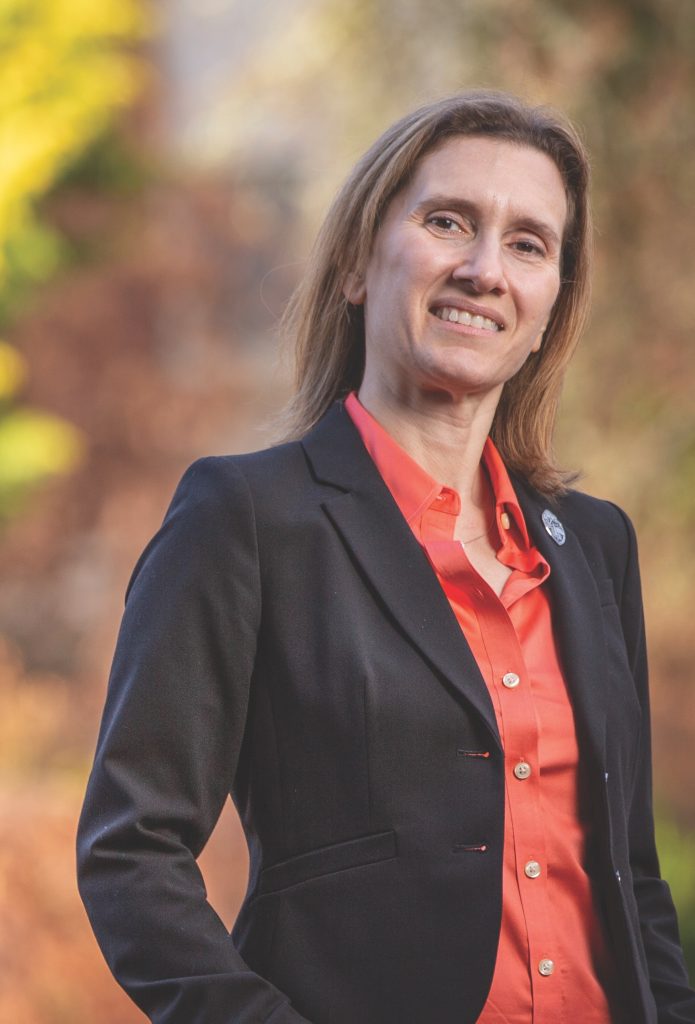By Irem Y. Tumer, Interim Vice President for Research
“Only those who will risk going too far can possibly find out how far it is possible to go.” — T.S. Eliot
Each day at Oregon State University, researchers take a step into the unknown. As this issue of Terra shows, they delve into realms as vast as a changing planet and as intimate as the human body. They address grand challenges like feeding the world and problems as tiny as the behavior of a fruit fly. They create devices that turn wild ideas into practical realities. And in the end, they work to deliver significant discoveries and innovation.

When thinking about this important work, I marvel at the inescapable risks that accompany each stage of the research process. From the earliest steps — identifying a problem to investigate, developing a fundable proposal, carrying out an approved program of study — risk is inherent. Will a researcher’s idea gain traction with peers? Will it merit support from funders? Will methods work as projected? Will they yield beneficial results?
By its very nature, research involves risk-taking. On a daily basis, OSU faculty undertake questions that face major obstacles yet offer potentially high payoffs: reliable, carbon-free energy; treatments for infectious disease that do not promote resistance; productive, sustainable sources of food. For example, this issue of Terra explores aquaculture and how Oregon’s historic ambivalence to growing fish and other marine species for commercial purposes squares with OSU’s efforts to support coastal communities, shore up global food supplies and improve rural economies.
Other stories underscore the risk-taking associated with the research enterprise. David Dallas faces the daunting challenge of what happens when mother’s milk meets a baby’s complicated digestive system. Elizabeth Marino’s cultural work with indigenous people in Alaska shows how they live with risks at the sometimes lethal edge of a changing planet. And David Biespiel’s work as a poet certainly involves risk as he pursues his creative literary passion.
This inspiring work potentially leads to a reduction in our collective risks as a society by driving evidence-based decision-making. Today, research is more important than ever as our world population continues to grow, our environmental concerns become more immediate and expanding fields like technology evolve at warp speed.
At OSU, we are committed to research because we know its results will help enable a healthier and more sustainable future for all of us. Solutions advanced through research deliver reasoned and verified findings that can reduce the risks we all face in many facets of our lives, from choices we make about the food we eat, where we live, the cars we drive and the media we consume.
As the OSU interim vice president of research, I am extremely proud of our determined and collaborative undergraduates, graduate students, post-docs and faculty who pursue their research visions with passion and take calculated risks each day. Through their work, OSU will continue to bring valuable discoveries and innovation to Oregon, the nation and the world.
